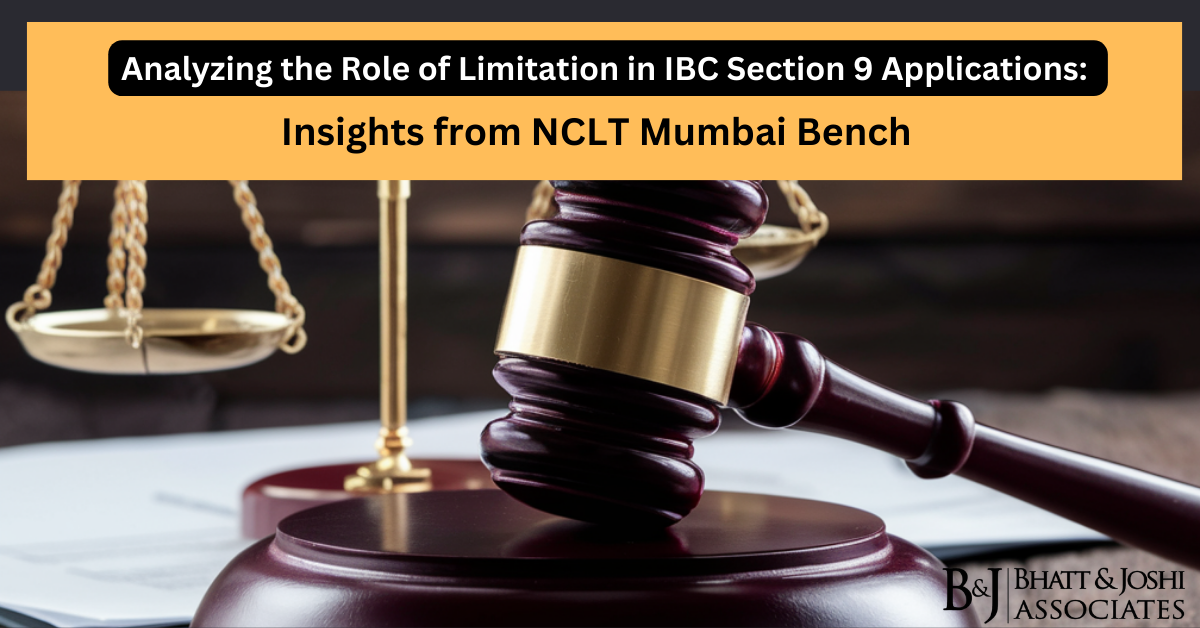Introduction
In a significant ruling by the NCLT Mumbai Bench, a critical examination of the limitation period in the Insolvency and Bankruptcy Code (IBC), 2016, Proceedings underlines its pivotal role in the adjudication process. The judgment, delivered by Hon’ble Shri K. R. Saji Kumar (Judicial Member) and Shri Sanjiv Dutt (Technical Member), establishes that once an insolvency application is found to be time-barred, there is no necessity to delve into other claims or contentions of the parties involved.
Background of the Case
The case involved Trigger Facility Private Limited, an Operational Creditor (OC), who filed an application under Section 9 of the IBC against Larsen and Toubro Limited, the Corporate Debtor (CD). The crux of the matter lay in whether the application was barred by the statute of limitations, a decision that would determine the necessity of examining additional claims and contentions within the application.
Key Legal Findings
Importance of the Limitation Period in Context of IBC
The NCLT highlighted the importance of the limitation period as a fundamental aspect in considering the admission of insolvency applications. Citing the precedent set in B.K. Educational Services Private Limited Vs. Parag Gupta and Associates, the bench underscored that if the root of the application is severed by the law of limitation, further exploration into the parties’ contentions becomes redundant.
Quoted from the Judgment:
“When the very root of the Application is cut by the law of limitation, no purpose would be served if we venture into discussing the contentions and rival contentions of parties.”
Application of the Limitation Act
The judgment elaborated on the application of Article 137 of the Limitation Act, 1963, to insolvency proceedings, emphasizing that applications must be filed within three years from the date the right to apply accrues. In this case, the claim was deemed time-barred as the last transaction date fell outside the three-year limitation period, leading to the dismissal of the application.
Operational Creditor’s Contentions
The Operational Creditor argued that there had been continuous transactions which could possibly extend the limitation period; however, the NCLT found that the evidence provided did not substantiate a clear continuation of liability within the stipulated time frame.
Implications of Judgment: Significance of Limitation Period in IBC Section 9 Applications
This ruling serves as a critical reminder of the stringent adherence to time limitations within the framework of the IBC.
– The limitation period is decisive in the acceptance of insolvency applications.
– Adjudicating authorities are not required to assess other aspects of the case if the application is found to be time-barred.
– The principles of limitation ensure that delayed claims do not disrupt the resolution processes designed to be swift and efficient.
Conclusion: The Conclusive Nature of Limitation Period in IBC
The NCLT Mumbai Bench’s decision reaffirms the importance of timely submission of claims under the IBC. This judgment not only clarifies the procedural necessities stipulated by the IBC but also prevents the unnecessary prolongation of litigation, thereby upholding the Code’s objective of timely resolution of insolvency cases. This case marks a significant development in insolvency jurisprudence, emphasizing that limitation periods are not mere procedural hurdles, but essential elements that uphold the integrity and purpose of insolvency.














